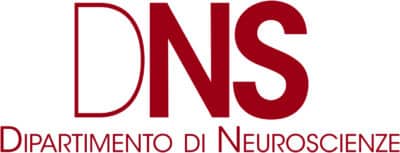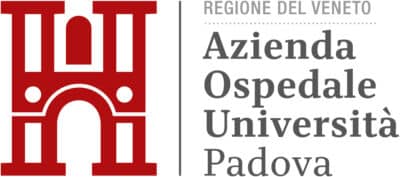

The Master’s Degree in Multidistrict Morphofunctional Surgery provides both the theoretical foundation and practical training in the most modern and advanced techniques for performing surgical procedures aimed at modifying the human form.
Courses, delivered by internal faculty members as well as renowned national and international experts, cover morphofunctional surgery of the face, breast, limbs, trunk, and abdomen, along with complementary technologies to morphofunctional surgery.
The objective is to offer a broad and up-to-date knowledge base on major surgical procedures, foster an understanding of the technical autonomy required during operations, and develop sound judgment in choosing the most appropriate technique to achieve the desired surgical outcome.
The educational approach integrates theory and practice, live surgery sessions, and clinical case discussions: each student will observe and actively participate in at least 12 surgical procedures per week, totaling 80–100 procedures over the course of the academic year.
The Second-level Short Specialisation Degree in Multiple Morphofunctional Surgery provides theoretical knowledge, hands-on training and professional updates to execute live surgeries aimed at changing the human shape, by comparing the attendees’ experience with the faculty’s.
The surgeries covered concern morphofunctional face, breast, chest and abdomen surgery, and complementary morphofunctional surgery methodologies.
The Master’s Degree in Multidistrict Morphofunctional Surgery is aimed at medical doctors who wish to deepen and update their knowledge and skills in performing surgical procedures designed to modify the human form.
The goal of the program is to provide qualified training in the most up-to-date procedures in multidistrict morphofunctional surgery, offering access to internal faculty as well as renowned national and international experts, and encouraging the exchange of diverse professional experiences.
The Master’s Degree in Multidistrict Morphofunctional Surgery is structured into the following modules:
Module 1 – MORPHOFUNCTIONAL DEFORMITIES OF THE NOSE AND PROFILE
Rhinoplasties, septoplasties, maxillary osteotomies
Mentoplasties
Profiloplasty
Module 2 – ORBITO-PALPEBRAL AESTHETIC DEFORMITIES
Blepharoplasties
Brow lift
Eye rejuvenation surgery
Periorbital surgery
Module 3 – FACIAL AGING
Subperiosteal lifting
Endoscopic lifting
SMAS treatment
Lipofilling
Midface rejuvenation
Cervicofacial lifting
Module 4 – AURICULAR DEFORMITIES
Otoplasty
Correction of auricular malformations
Module 5 – AESTHETIC DEFORMITIES OF THE BREAST
Reduction mammaplasties
Augmentation procedures
Gynecomastia
Mastopexy
Lipostructuring
Breast malformations
Module 6 – AESTHETIC DEFORMITIES OF THE CHEST WALL
Correction of sternal malformations
Upper torsoplasties
Module 7 – AESTHETIC AND FUNCTIONAL DEFORMITIES OF THE ABDOMINAL WALL
Abdominoplasties
Torsoplasty
Lipoabdominoplasty
Module 8 – AGING OF THE LOWER LIMBS
Thigh lift
Module 9 – LOCALIZED ADIPOSITY
Lipoplasties
Dermolipectomies
Post-bariatric surgery
Body contouring surgery
Module 10 – BALDNESS AND POST-TRAUMATIC ALOPECIA
Hair transplantation
Skin expansion
Regenerative medicine
Module 11 – AESTHETIC ALTERATIONS OF THE SKIN ENVELOPE
Laser therapy and ancillary aesthetic medicine procedures (peels, fillers, botulinum toxin, LPG, revitalization, shock waves, revitalizing threads)
Module 12 – ANESTHESIA IN AESTHETIC SURGERY
The Master’s program takes place over a period of 9 months, with monthly weekly cycles held at the Plastic Surgery Clinic, Department of Neurosciences, University of Padua.
Each cycle consists of one full-time week per month, from Monday to Friday, totaling 40 hours per week. Every cycle includes introductory ex-cathedra lectures, live surgery sessions, seminars, and practical exercises.
Attendance is mandatory: each participant must attend at least 8 out of the 9 scheduled cycles. Overall attendance must reach at least 75% of the total hours of the Master’s program.
By the end of the course, participants must have taken part in the preoperative analysis and surgical treatment of at least 5 clinical cases for each type of procedure.
Each student is also required to submit a final written project (thesis), which will be discussed during the final examination, based on a topic chosen in agreement with the assigned internal faculty Tutor.
The Master’s program employs a combination of diverse teaching methods, delivered by internal faculty and renowned national and international experts:
● Ex-cathedra lectures, aimed at deepening the theoretical scientific foundations and exploring the latest methodological and technological innovations related to morphofunctional surgery.
● Live surgery sessions, during which each participant can observe and actively take part in real-time surgical procedures, with an average of at least 12 surgeries per week, totaling 80–100 surgeries throughout the academic year.
● Clinical case discussions, with a particular focus on the analysis of pre- and post-operative surgical decisions, direct procedure planning on the patient, and the development of a follow-up program.
The general ranking of merit for the academic year 2025/26 will be published on the Italian page of this Master according to the timing provided in the Call.
Information
FAQ
During each attendance week, with the informed consent of the patients, Master’s participants actively take part in the general examination of inpatients at the Plastic Surgery Clinic and are involved in the pre- and post-operative discussion of clinically relevant cases.
A key feature of the Master’s program is the extensive use of live surgery sessions, accounting for 60% of the total training hours, and the active involvement of participants in the planning of surgical procedures. This approach is intended to enhance the understanding of the critical phases of each surgery and of every technique addressed throughout the course.
Surgical procedures are discussed directly in the presence of the patient, with the aim of fostering the development of effective and appropriate doctor–patient communication skills.
Yes, intermediate assessments are scheduled, typically at the end of each module, as well as a final examination, which consists of the drafting and presentation of a final paper (thesis).
No, there are no forms of financial aid available.
A specialization is not an essential requirement but is considered a preferential qualification for admission to the Master’s program.

